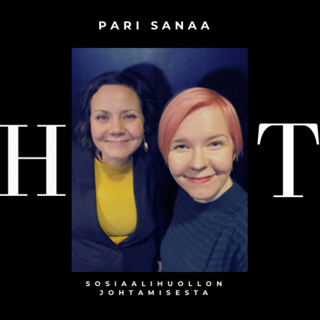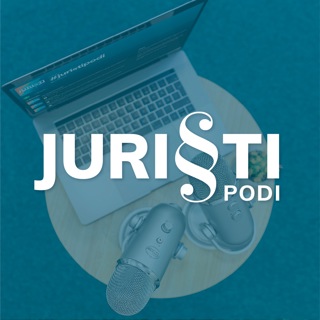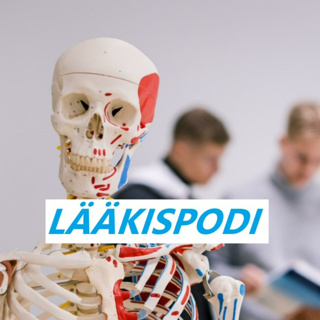
Bombas: David Heath and Randy Goldberg
David Heath and Randy Goldberg saw an opportunity to disrupt a long dormant—and arguably boring sector...socks. They met at a startup in their 20s, each already had their own side hustles before they hatched a plan to launch a business together. Randy and David didn’t initially intend to get into the sock business, but in 2011, David read that socks are the most requested clothing item at homeless shelters. That led them to start a company they called Bombas based on a promise: for each pair of socks a customer bought, another would be donated to the homeless. Within about ten years, their one-for-one start-up turned into a quarter of a billion dollar business that has expanded into sweatshirts, underwear, and t-shirts.Listen to The Great Creators launching September 20thSee Privacy Policy at https://art19.com/privacy and California Privacy Notice at https://art19.com/privacy#do-not-sell-my-info.
19 Syys 20221h 21min

HIBT Lab! SOURCE Global: Cody Friesen
Water is all around us–quite literally, there is enough water in the air we breathe to meet all of humanity’s needs and then some. Engineering professor Cody Friesen invented a solar-powered device that captures this vapor and transforms it into drinking water. Cody began manufacturing these ‘hydropanels’ with his Arizona-based company SOURCE in 2014, and today they’re used in more than 50 countries worldwide.This week on How I Built This Lab, Cody talks with Guy about the prevalence of water scarcity in the U.S. and around the globe, and his company’s work to become the world’s first renewable, fully-digitized drinking water utility. Plus, the two discuss how entrepreneurs should be thinking about the growing renewable energy market.See Privacy Policy at https://art19.com/privacy and California Privacy Notice at https://art19.com/privacy#do-not-sell-my-info.
15 Syys 202238min

Rivian: RJ Scaringe
When you consider the risk of doing business, it doesn’t get much bigger than starting a car company: competition is formidable, startup costs are in the billions, and very few people believe you can pull it off. That’s the massive challenge RJ Scaringe walked into in 2009, when he launched his truck and SUV company, Rivian. To add to the risk, RJ wanted to build fully electric vehicles while attracting drivers who’d never bought them, so he knew his trucks had to be fun and sporty: appealing in their own right. Rivian’s journey has taken RJ from an old warehouse in Florida to a massive Midwestern car manufacturing plant; and from years of stealth planning to months of anticipatory buzz from buyers and the industry. Rivian rolled its first trucks off the line in 2021, and is hustling to fulfill tens of thousands of vehicle reservations from excited customers. There have been pivots, sleepless nights, and, of course, multiple supply chain issues, but today, Rivian is valued at $30 billion and is a major player in the electric vehicle industry.See Privacy Policy at https://art19.com/privacy and California Privacy Notice at https://art19.com/privacy#do-not-sell-my-info.
12 Syys 20221h 14min

HIBT Lab! Malala Fund and Our Place: Shiza Shahid
On October 9, 2012, Shiza Shahid’s life changed forever. It was on that day that 15-year-old Pakistani activist Malala Yousafzai was shot in the head by a Taliban gunman, capturing the world’s attention. Before long, 22-year-old Shiza found herself leaving her corporate job to join a recovering Malala and her father in launching the Malala Fund, a nonprofit that advocates for girls’ education across the globe. Little did Shiza know, this venture was actually just the beginning of her entrepreneurial journey...This week on How I Built This Lab, Shiza recounts the childhood experiences that forged her commitment to public service and advocacy—ultimately shaping her worldview and leading to her first encounter with Malala. She also discusses her pivot to the for-profit world with Our Place, the cookware company she co-founded in 2019 that’s both profitable and making an impact.See Privacy Policy at https://art19.com/privacy and California Privacy Notice at https://art19.com/privacy#do-not-sell-my-info.
8 Syys 202245min

S'well: Sarah Kauss (2020)
In 2009, Sarah Kauss had a well-paying job in real estate development, but she was itching to do something more. On a hike in Tucson with her mom, she got an idea for a business while swigging warm water from a metal thermos: Why not design a water bottle that kept cold things cold and hot things hot, but was also beautiful to look at? Just six years after launch, S'well reportedly made $100 million, and today, Sarah is especially focused on how the brand can help eliminate plastic waste around the world.See Privacy Policy at https://art19.com/privacy and California Privacy Notice at https://art19.com/privacy#do-not-sell-my-info.
5 Syys 20221h 4min

HIBT Lab! Bored Ape Yacht Club: Greg Solano and Wylie Aronow
You might not expect a deep friendship to bloom from an argument about favorite authors...in a Miami bar...during spring break. Yet that’s exactly how Greg Solano and Wylie Aronow’s long journey to becoming business partners began... Fast forward more than a decade, and Greg and Wylie are now co-founders of Yuga Labs—the company behind the Bored Ape Yacht Club NFT collection. Since the collection was unveiled in spring 2021, the value of each digital ape has skyrocketed, with celebrities like Paris Hilton, Snoop Dog and Madonna getting in on the action. Within a year of its founding, Yuga Labs received a whopping $4 billion valuation, making it one of the fastest companies ever to achieve unicorn status. This week on How I Built This Lab, Greg and Wylie recount their whirlwind success story in one of their first-ever public interviews. We hear how a shared love of storytelling and online gaming helped spawn the idea for the bored apes; plus, Greg and Wylie tell Guy about the next big endeavor for Yuga Labs: expanding into the metaverse.See Privacy Policy at https://art19.com/privacy and California Privacy Notice at https://art19.com/privacy#do-not-sell-my-info.
1 Syys 20221h 7min

Men's Wearhouse: George Zimmer (2019)
In 1970, George Zimmer was a college graduate with no real job prospects and little direction. That's when his father, an executive at a boy's clothing company, asked him to go on an important business trip to Asia. It was that trip that propelled him into the world of men's apparel. In 1973, the first Men's Wearhouse opened in Houston with little fanfare, but by the mid-80s, George Zimmer managed to carve out a distinct niche in the market—a place where men could buy a good quality suit, at "everyday low prices," along with all the shirts, ties, socks, and shoes they need.With George as the face of the brand, Men's Wearhouse became a multi-billion dollar empire with hundreds of stores across the U.S. But then, in 2013, a bitter battle forced him to give it all up.See Privacy Policy at https://art19.com/privacy and California Privacy Notice at https://art19.com/privacy#do-not-sell-my-info.
29 Elo 20221h

HIBT Lab! Yolélé: Pierre Thiam
Pierre Thiam was robbed within days of arriving in New York City. It was 1989, and he had just traveled to the U.S. from Senegal to study chemistry and physics. This chance incident, however, set Pierre’s life on an entirely different course. Today, he’s a renowned chef, restaurant owner, cookbook author, and co-founder of Yolélé – a company working to introduce the world to an ancient West African grain called fonio.This week on How I Built This Lab, Pierre talks with Guy about his company’s work to circulate this nutrient-dense and drought-resistant food source. Pierre also shares how he overcame cultural norms to embrace his cooking career, and his take on the connection between colonization and the vulnerability of our global food systems.See Privacy Policy at https://art19.com/privacy and California Privacy Notice at https://art19.com/privacy#do-not-sell-my-info.
25 Elo 202241min





















